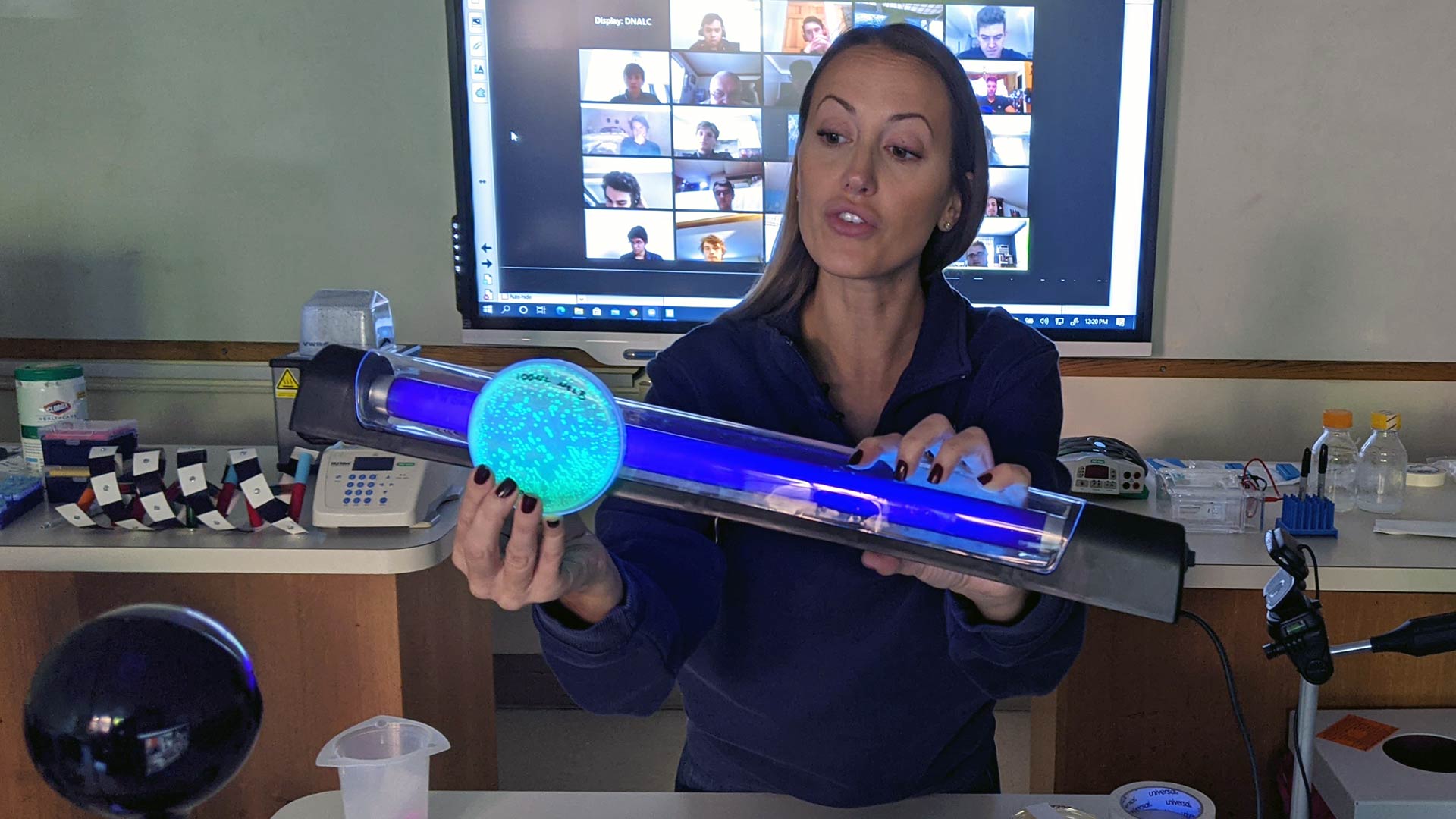In February 2020 construction began on the DNA Learning Center NYC in Brooklyn, NY. Hosted by the New York City College of Technology (City Tech), the 17,500 square-foot space will provide easy access to students and teachers throughout New York City. This project builds on the success of Harlem DNA Lab, established in 2008, to extend the DNA Learning Center’s (DNALC) services to underrepresented minorities and disadvantaged students in New York City. The Brooklyn center will also be the Genomics Hub of the InnovATEBIO National Biotechnology Education Center, funded by the National Science Foundation’s (NSF) Advanced Technological Education (ATE) program to support biotechnician training at two-year colleges. Under this program, the DNALC will provide course-based undergraduate research experiences (CUREs) and help launch a two-year biotech program at City Tech.
The COVID-19 pandemic challenged the DNALC’s hands-on learning model and forced a shift to remote learning. On March 20, 2020 they launched “DNALC Live,” posting over 120 live events and videos to YouTube to stand in for lab field trips. An animation explaining RNA-based testing for COVID-19 was frequently accessed. Over the ensuing quarantine, YouTube views more than doubled, and new subscribers and watch time more than tripled. The DNALC also pivoted to virtual instruction supported by “at-home” kits, with 484 students attending virtual camps in the summer and 2,673 attending virtual field trips in the fall.
With funding from the National Science Foundation (NSF), National Institutes of Health (NIH), Simons, and Pinkerton Foundations, the DNALC continued to support authentic research by 458 citizen scientists, high schoolers, and college students. They studied biodiversity using DNA barcoding and metabarcoding, including a campaign to identify and track ant species across the US.

